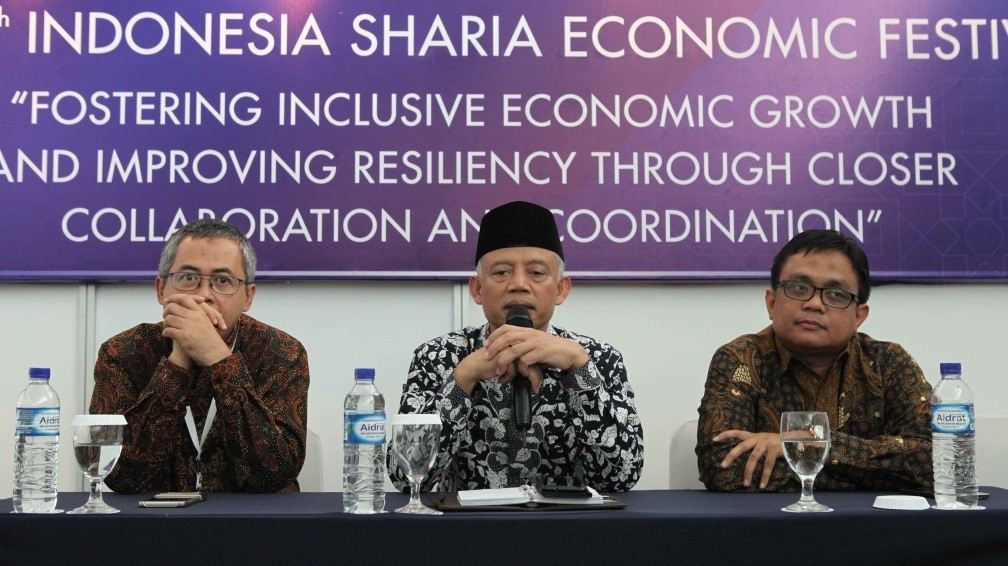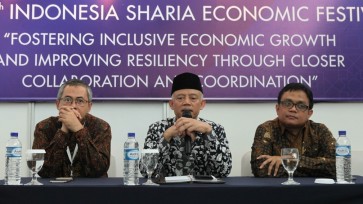Popular Reads
Top Results
Can't find what you're looking for?
View all search resultsPopular Reads
Top Results
Can't find what you're looking for?
View all search resultsProspects of cryptocurrencies in Islamic finance
While the ambiguity about sharia compliance has kept many devout Muslims on the sidelines, companies across the Islamic world have started incorporating blockchain and cryptocurrencies into their business models.
Change text size
Gift Premium Articles
to Anyone
 Indonesia Waqf Board (BWI) foreign division chief Muhammad Luthfi (center) talking about waqf (Islamic endowments) during a press conference held at the Fourth Indonesia Sharia Economic Festival 2017 in Surabaya, East Java. During this opportunity he was accompanied by Bank Indonesia sharia finance and economy department division chief Bambang Himawan (left) and Robbyantono, of the BWI’s waqf management and empowerment division, on Nov. 8. (JP/Arief Suhardiman)
Indonesia Waqf Board (BWI) foreign division chief Muhammad Luthfi (center) talking about waqf (Islamic endowments) during a press conference held at the Fourth Indonesia Sharia Economic Festival 2017 in Surabaya, East Java. During this opportunity he was accompanied by Bank Indonesia sharia finance and economy department division chief Bambang Himawan (left) and Robbyantono, of the BWI’s waqf management and empowerment division, on Nov. 8. (JP/Arief Suhardiman)
I
n 2019, a mosque in London announced it would begin to accept donations in cryptocurrency form, claiming to be a world first. Although many were skeptical, the mosque received four times more donations in cryptocurrency during the month of Ramadan than in traditional cash.
Even before the mosque’s experiment, debate has been raging about the permissibility of cryptocurrencies under Islamic law as religious scholars deliberate the issue of sharia compliance.
Some religious scholars in Egypt, Turkey and India for example have directly opposed the use of cryptocurrencies citing various issues such as their use in illegal activities, widespread speculation and price volatility. Others, however, have declared bitcoin sharia compliant, paving the way for Islamic institutions to start accepting cryptocurrencies.
Considering that the worldwide Islamic finance market recently surpassed US$2 trillion, the issue of sharia compliance has huge economic significance. Muslims make up almost a quarter of the world’s population and Muslim countries account for approximately 10 percent of global gross domestic product.
To comply with sharia, financial products should avoid interest, speculation and excessive uncertainty. They should also be ethical and underlying contracts should be transparent, while Islamic financial instruments should be backed by real economic activity or a physical asset.
Against these benchmarks, concerns have been raised about widespread speculation and the extreme price volatility of cryptocurrencies. Furthermore the majority of cryptocurrencies have no underlying economic activity or physical asset.
However, taken to an extreme, strict interpretations of Islamic finance disapprove even of traditional fiat currencies — especially so after the gold standard was abandoned in 1971 and money lost its “real” value.

















